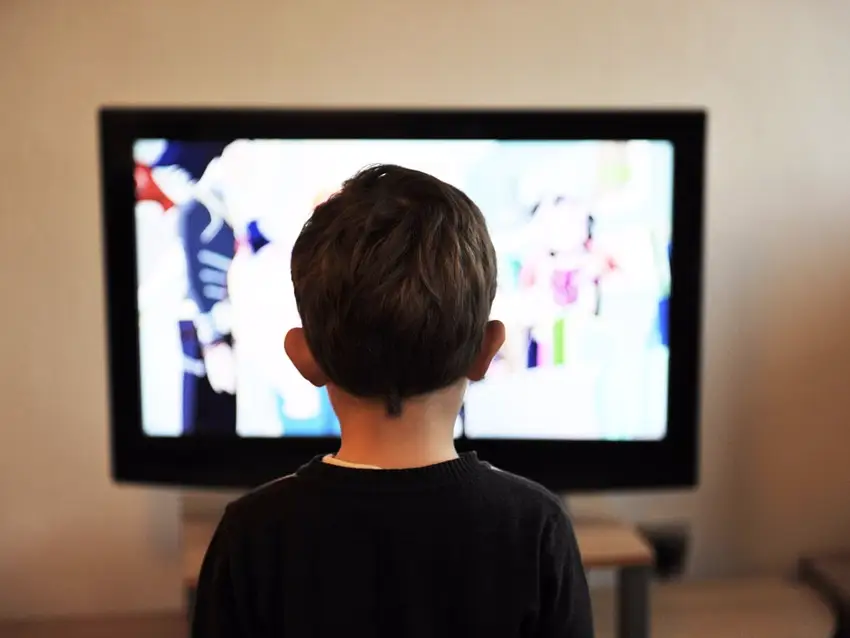This type of project often entails working together or industrial collaboration.
Recently, many have been discussing whether children need TVs in their mattress room. I will touch briefly upon that subject here before discussing if autistic kids and neurodivergent children require one as opposed to neurotypical teenagers – I explain my thinking here.
Analysis has demonstrated that 75% of children want a TV in their bedroom; this may apply more so to neurotypical kids as opposed to children with additional needs who often become lonely due to limited extra-curricular activities and may therefore prefer having one there; on the other hand, younger ones might simply not think much of having it yet!
As soon as they start nursery school, teenagers typically request television in their bedrooms – I believe the same should hold true for children with autism or additional needs, provided they possess language and understanding necessary for asking.
Why Do Children Require TV in Their Bed Room? Many kids desire or require television in their mattress room in order to use with game consoles rather than simply watching live TV broadcast. This approach actually has many advantages such as using an older TV without incurring extra expenses such as for sky services etc.
Children often enjoy watching television in their bedroom to allow them to relax without disruption from siblings and parents, or watch various shows they choose without us complaining! Kids don’t get bothered when we keep repeating something they already watch multiple times so if we weren’t listening in, they would just keep repeating whatever show or game was showing – no need for us to complain!
When should a TV go in their room? That decision ultimately lies with you as the parent/caregiver; even though media reports often advise against having TV in kids’ rooms due to various risks associated with viewing, ultimately only you know your teen best and can decide what would best benefit or harm him/her.
My experience tells me it’s best not to give children an older TV as this may cause frustration for both of you, with them either throwing things on the television screen or not paying enough attention when viewing. Therefore, purchasing a new one for either your lounge or bed room would be the optimal time and place to introduce kids to one!
Have you been shopping around for new TVs but cannot justify their costs, such as that Samsung 8k TV? Perhaps remembering it will not only get you one but will provide something similar for your children will help it seem more reasonable.
What distinguishes autistic children when it comes to television in their room?
As the mother of an autistic toddler, I’ve spoken with several parents whose kids also possess neurodivergent characteristics or who exhibit behaviors associated with autism or neurodiversity and I must note there are distinct similarities among all their kids despite all being unique individuals.
Parenting a toddler with special needs can be extremely taxing. These children tend to require greater supervision than other youngsters and often sleep significantly less, adding another challenge into your parenting duties. Ben was only sleeping a few hours a night for years; so from 2 am I would stay awake with him trying to keep him entertained as he couldn’t settle into restful slumber despite needing the rest! In reality he did not need the sleep at all as his days were packed full! Different parents in similar situations typically agree that every second you can spend free from children is precious. One way of accomplishing this could be installing a safety gate on their mattress room door to keep everything secure for their sleeping area while they use the lavatory in peace.
If having a TV in your teen’s bedroom helps provide that necessary respite as a parent, I believe it to be essential. Routines and tips are definitely vital; but your mental wellbeing should come first! In my honest opinion, having one there could only benefit both you and the rest of the family in terms of getting you some much-needed restful relaxation time together as parents of special needs children. Life can already be hard enough without restricting yourselves from taking much-needed breaks for yourselves as caregivers!
Make life simpler on yourself and if having your teen watch TV in their bed room makes life simpler for all of you then do it! Just because this option might not suit everyone doesn’t mean it won’t help your situation!
Five points to bear in mind when adding a TV to a child’s mattress room: Net Access – does the TV allow access to the internet? If that is so, ensure their security by changing settings on their router if necessary to block dangerous websites from access.
Sky and streaming inappropriate content – learn which settings can help ensure a password will be needed to gain entry to any material that exceeds an age or developmental requirement for viewing content material on Sky.
Rearrange it safely – A television can be quite heavy, so take special care in making sure it will not be toppled over by children or teenagers. Consider what would happen if they climbed furniture or pulled cables without supervision or your teenage will soon outgrown this stage and need access to this TV wall bracket which should keep it out of reach for now!
Event Usage- If you want to restrict when and where a TV may be utilized, adding an intelligent plug might allow only specific situations using Alexa routines or similar.
Where the TV should be placed against a wall – If your toddler enjoys watching cartoons loudly at 6 am, consider where your television sits so as not to disturb young siblings or neighbours who could find this annoying.
This infographic highlights evaluation and statistics related to children who own television sets in their bedroom. If the image cannot be seen properly or you need the numbers easily available here are their details:
75% of children want a TV in their room! 43% of parents waited to add one once toddler school began; and they start asking for it even earlier! Nachwuchs 45% watch it to help them sleep at nighttime!
Reliant conducted a poll with 680 parents to gather this data. Only 8% of children do not watch television programs while 50% still view live TV broadcasts and 54% use an iPad or Tablet device. Reliant collected this information through its survey.
Should this article have been of assistance, don’t be shy in sharing. If it was useful please spread the word!
Are You Struggling with Weight Management, Fitness Training or Acceptance of Who You Are
Need some extra support getting through training sessions and weight-loss or working on accepting yourself more readily? I have free resources and programs designed to assist. Take a look by clicking below!








